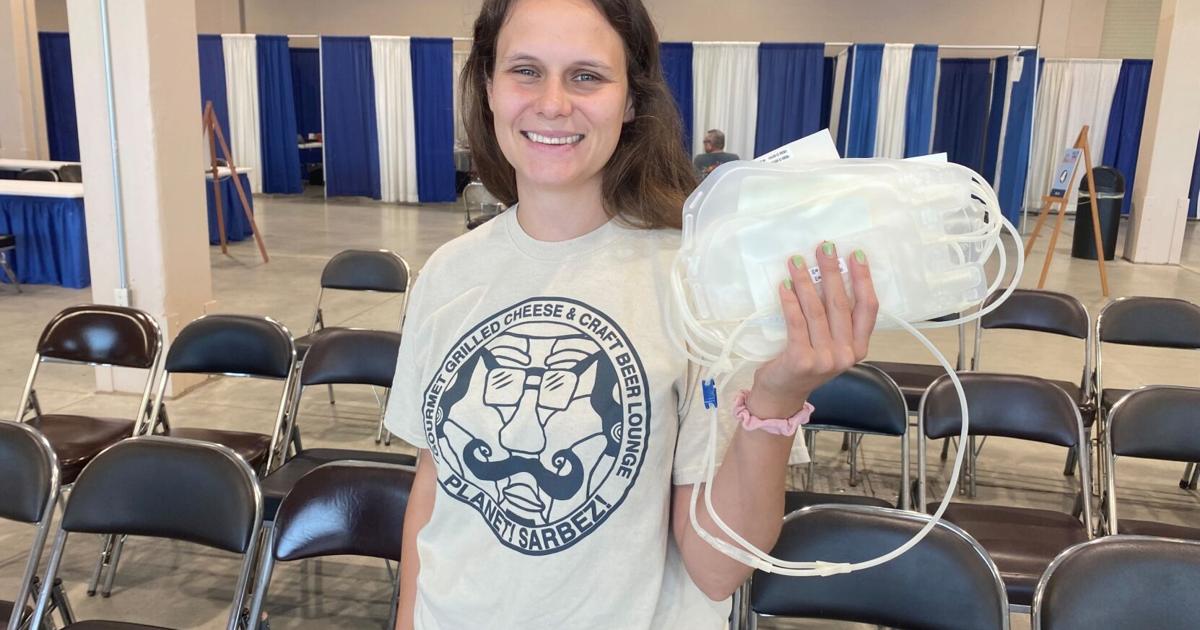Blood
Delmarva Blood Bank asking for community help during blood shortage
With the region experiencing a recent blood shortage, the Delmarva Blood Bank is turning to the LGBTQ+ community for assistance.
On Sept. 14, the blood bank reported an emergency blood shortage after experiencing a low donor turnout over the summer.
“Mobile operations were successful during the summer, but the actual donor centers were half-full,” Blood Bank Communications Specialist Tony Prado said. “It was very common to see several unfilled appointments, and for those that did schedule, the no-show rate was very high.”
Prado said that the circumstances were ultimately what led to the bank declaring the blood shortage.
“We were down to only a one-to-three-day supply for several of our key blood types, such as O+, O-, and B-,” Prado said, noting that optimally, the region’s blood supply should last five to seven days.
“When the supply gets that low, that’s what triggers the emergency,” she added.
The blood bank announced that amid the shortage, they would be able to start accepting LGBTQ+ donors beginning Oct. 2. They would use a donor screening process that they implemented on Sept. 28 based on guidance from the Food and Drug Administration that will focus on individual donor assessment, rather than sexual or gender identity.
“It screens each individual on a case-by-case basis,” Prado said. “It would focus on their individual risk behavior, rather than on their sexual orientation. Everyone will undergo the same assessment and it essentially lifts the deferral on the gay community from donating blood.”
He also noted that the LGBTQ+ community has historically expressed a desire to donate blood.
Prado explained that, in 1983, the FDA instituted a lifetime deferral on blood donations for gay and bisexual men in order to reduce the chance of HIV in the blood supply at a time when testing was limited or non-existent. In 2015, the FDA changed the deferral to 12 months, as new testing capabilities and data demonstrating safety in shortened deferral became available. The deferral was revised again in 2020 to three months.
“Through implementing the individual donor assessment, we had to train all our staff for new questionnaire revisions in the donor screening process,” Prado said.
Prado said that last year, the blood bank declared five blood emergencies and after some time, they were able to lift the emergency based on the response of local residents.
Although Prado is uncertain whether accepting LGBTQ+ donors will remedy the situation, he still appreciates when people come to donate blood, noting that some come to donate for the first time, or for the first time in years.
“I don’t know how many (or) what kind of numbers we’re going to get as a result of [the individual donor assessment] but it can’t hurt. I mean, if we’re getting new people to donate blood, that is a good thing,” Prado said.
Erinn Cook, the director of laboratory services at Atlantic General Hospital in Berlin, said that the blood bank asked them to be diligent with transfusions, resulting in them increasing the number in available appointments.
“Blood products are expensive, so they don’t want us to waste anything,” Cook said.
She also said that while she isn’t sure what effect the new criteria will have on their blood supply, they currently haven’t had any shortages in their inventory.
Prado hopes that people will give it a try to donate blood in the coming months as it helps out the community and the 19 hospitals across the region in Maryland, Delaware and Virginia.
“Everyone’s blood is tested, and the screening will tell you your blood type for free,” Prado said.
For more information, visit delmarvablood.org.

